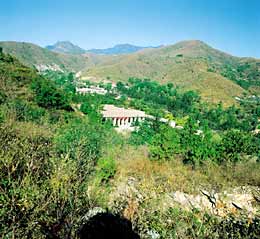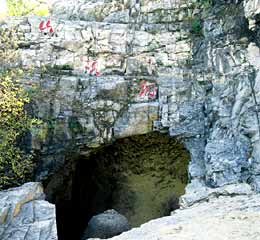Zhoukoudian, Home of Peking Man
In December 1929, a Chinese paleoanthropologist named Pei Wenzhong discovered a complete skull of "Peking Man" on Dragon Bone Hill northwest of Zhoukoudian, in the southwest suburbs of Beijing. Later, archaeologists unearthed 40-odd individually fossilized skeletons of "Peking Man", male, female, old and young, all at the same site. Zhoukoudian, therefore, became the most common site for human remains with the most abundant fossils in the world from the same period. The discovery pushed the history of Beijing's civilization back to some 600,000 years. These fossilized remains prove that "Peking Man" was primitive man in an evolutionary process from ancient ape to modern man, and is the ancestor of the Chinese nation.
 |
In 1987, the Zhoukoudian caves were listed as one of the world cultural heritage sites.
 |
 |
Zhoukoudian Peking Man Relics Museum
Tel: 86-10-69301272 69301278
(China.org.cn September 12, 2003)
 0
0 






